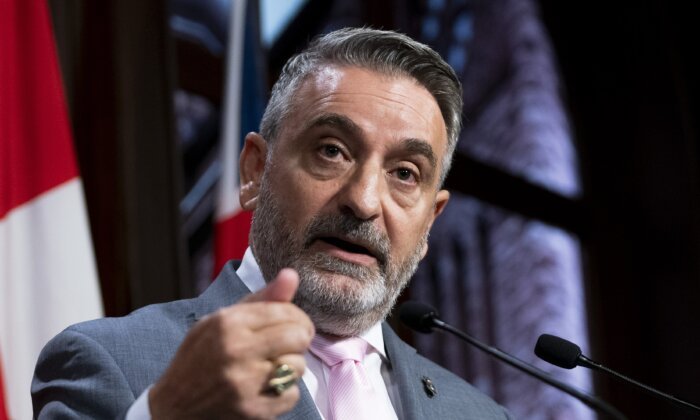Province Dismisses Town Council in Northern Ontario Due to Ongoing Conflict
A six-month municipal strike, legal battles, and a council meeting boycott has led to the province removing the mayor and council in a northern Ontario municipality.
Municipal Affairs Minister Paul Calandra instructed the mayor and council to vacate their positions in Black River-Matheson this week, sparking a by-election in the town of 2,400 residents, located approximately 50 minutes west of Timmins.
The council had not convened a meeting for months following the resignation of two councillors and a boycott by three others. This lack of activity prompted Mr. Calandra to dismiss the council.
“It is the responsibility of elected councillors to ensure that services are provided to residents,” Mr. Calandra stated in a letter dated April 29.
“This includes attending council meetings and filling vacant council positions promptly. The absence of meetings hinders decision-making and impacts local residents negatively,” he added.
Until a by-election can be held, the duties of the council will be carried out by Kathy Horgan, the manager of local government and housing for the ministry’s northern regional office, according to the letter.
The council’s last public meeting was on Jan. 23. Subsequent meetings scheduled for Feb. 13, Feb. 27, March 12, March 26, April 9, and April 23 were all canceled due to insufficient attendance for a quorum. The only meeting held since January was an in-camera session on Feb. 20.
With a seven-member council, at least four members must be present to establish a quorum.
Councillors Dave Dyment, Louise Gadoury, and Steven Campsall explained to local media their decision to boycott meetings until the Ministry of Municipal Affairs and Housing intervened.
According to the Municipal Act, if a municipal council fails to convene a meeting for 60 days due to a lack of quorum, the Minister of Municipal Affairs must take action.
In a letter to the community on March 18, the three councillors stated that the council could no longer effectively cooperate.
“We have experienced firsthand the obstacles hindering our council from advancing the priorities our constituents elected us to pursue,” the letter read.
Strike, Resignations, and Legal Action
The turmoil began in May when the council approved a 34.2 percent tax increase, leading residents to protest and petition the Ministry of Municipal Affairs and Housing for intervention. The ministry’s inaction fueled discontent among those opposed to the tax hike.
Approximately 40 individuals involved in the petition received cease-and-desist letters from the town accusing them of making defamatory remarks about the council.
In August, Ward 6 Councillor Kim Druer resigned, followed by a lockout of 14 municipal workers by the town in October.
The lockout evolved into a strike in January, prompting the resignation of another councillor, Keith Neal, in February.
In March, a public dispute between the union and the town escalated when Mayor Doug Bender posted a letter on social media calling for mediation while also criticizing CUPE 1490 president Serge Bouchard for comments made at a public meeting.
The union swiftly responded to the mayor’s letter, asserting that his remarks “reeked of desperation.”
The union sought a judicial review of the town’s conduct, alleging that the town had violated the Charter rights of CUPE members by banning them from town facilities in February. Concurrently, the town initiated legal proceedings against the strikers, citing threatening behavior, as reported by CTV.
Earlier this month, a resolution seemed to be within reach in the six-month standoff with town employees, but the town’s persistence in pursuing legal action against workers for their conduct during the strike delayed the agreement.
Reportedly, the town has appealed to the Ontario Labour Relations Board to enforce both parties to finalize the agreement.
The Epoch Times reached out to the municipality for comment but did not receive a response prior to publication.





